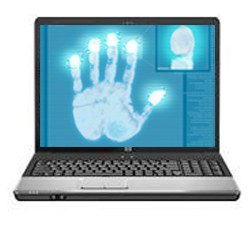Top 5 Tips to Avoid Online Identity Theft Traps
 In this day and age people are conscious about protecting their personal information now more so than ever, especially since social networks, such as Facebook, are the most popular market to target among hackers.
In this day and age people are conscious about protecting their personal information now more so than ever, especially since social networks, such as Facebook, are the most popular market to target among hackers.
The best way to protect yourself against identity theft is to first be aware of how cybercrooks are able to steal your personal information.
The Internet can be your best friend or your worst enemy.
It is all how you represent yourself digitally. Anyone can easily dig through someone's trash and find a credit card bill or your tax return information. Imagine cybercrooks digging through your social network accounts to steal your sensitive information.
Cybercriminals often setup phishing sites which are web pages designed to look like a legitimate source only to trick you into supplying vast amounts of personal information. In addition to phishing sites, cybercrooks are skilled at finding clever ways to infect victims' computers with malware, which can be used to steal banking login credentials or passwords to access other online accounts. Below we have composed a list of the top 5 tips to help you avoid identity theft on the Internet.
Table of Contents
Tip #1: Be Suspicious of Everything
To be one step ahead of cybercrooks means you need to be aware of the dangers lurking on the Internet and to be suspicious of everything. Often people click on a link assuming that is from a trusted source. Ever get a message via email claiming to be your bank and asks you to donwload a .zip attachment to update your password? What you received was a scam email with a .zip attachment that contains a password stealing Trojan horse. You should naturally be suspicious of emails that ask you for your personal information. As a rule, banks never ask customers for their personal information, such as account numbers or passwords, or ask you to download software in an email.
Tip #2: Delete Suspicious Emails
When you receive a suspicious email, it is best to delete it. Leaving an unwanted message in your inbox with a potentially harmful attachment is risky. Treat unwanted email messages just like you would a credit card offer in the mail; shred it by deleting it out of your inbox. It is also recommended that you avoid downloading files from a 3rd party source; for example, updating your Adobe Flash Player from a third-party site that is not the maker of the software, which is in this case Adobe.com. A file downloaded from a third-party may contain malware or a virus that is designed to steal data from your computer.
Tip #3: Go on a Social Diet
If you have a Facebook, Twitter or MySpace account, then you could be a prime target for identity theft. Each social network has been attacked in some shape or form with hackers attempting to steal personal information from its users. It is a good idea to take advantage of any security features or settings that the social network of your choice has to offer. It is also suggested that you limit the amount of personal information that you share on any social network regardless of how stringent the privacy settings claim to be. A simple rule: Never list your full phone number, date of birth, or physical address on your social networks' profile. Don't give away too much information and there will be less chances for a hacker to steal your identity.
Tip #4: Be Vigilant
Keep track of your banking accounts, credit card accounts, and credit history. By being proactive and keeping a close eye on your accounts, you could easily identify unauthorized use of an account early and stop cybercrooks in their tracks. There are companies that offer credit monitoring services that can perform these actions automatically and notify you when an unauthorized transaction has taken place. It is also wise to utilize a phishing filter on your web browser to ensure that you do not land on a fake banking website that can steal your login credentials.
Tip #5: Clean-up Your Computer to Protect your Privacy and Security
Malicious programs or threats installed on your computer can compromise your personal information. Some threats are well known for connecting to a remote attacker without your knowledge, potentially transferring information that leads to identity theft. If your system's performance is sluggish all-of-a-sudden or your computer has started to act strangely, then it would be a great time to perform a spyware or virus scan. Applying the latest software updates and Windows security patches is also a good preventative measure to keep your system running spyware- and virus-free.
What do you do to avoid identity theft over the Internet?